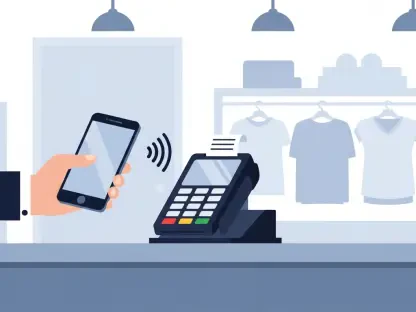Imagine a world where patients no longer need to repeatedly check their phones or call their local pharmacy to find out if their prescriptions are ready, and a groundbreaking initiative in the UK is turning this vision into reality through a pilot program. This program introduces push notifications via the NHS App, alerting users the moment their medications are prepared for pickup. Spearheaded by NHS England, this effort is set to transform the patient experience by enhancing convenience and streamlining communication between pharmacies and individuals. By integrating cutting-edge technology into everyday healthcare, this trial represents a significant step toward a more connected and responsive system. As digital innovation continues to reshape community pharmacy operations, the focus remains on improving efficiency while prioritizing patient needs. This development is just one piece of a larger puzzle, as broader technological advancements are also underway to support pharmacies across the nation.
Digital Innovation in Patient Communication
Enhancing Prescription Updates Through Technology
A major challenge in healthcare has been the lack of real-time updates for patients regarding their prescription status, often leading to frustration and unnecessary delays. The pilot program launching this autumn aims to tackle this issue head-on by testing push notifications through the NHS App. Select pharmacies using specific patient medication record systems, such as Apotec CRM, Columbus, Pharmacy Manager, and Titan, are participating in this trial. These pharmacies will engage in a structured evaluation process, including two-day site visits to assess the service’s impact and gather patient insights. Additionally, remote feedback sessions lasting around 45 minutes will provide further data on user experience. To ensure awareness, participating locations must display posters encouraging patients to join the research effort. While exact timelines are still being finalized due to ongoing development, this initiative promises to bridge a critical gap in communication, making prescription tracking seamless and intuitive for users across the UK.
Fostering Patient Engagement in the Trial
Beyond the technical rollout, the pilot program emphasizes active patient involvement to refine the notification system. Pharmacies participating in the trial are not only tasked with implementing the technology but also with engaging their communities to ensure the feedback loop is robust. By inviting patients to share their experiences, the initiative seeks to understand how these alerts influence satisfaction and convenience. The structured research process is designed to capture diverse perspectives, ensuring that the system addresses real-world needs. Moreover, pharmacies expressing interest in joining the trial can submit forms to become part of this transformative effort. This collaborative approach highlights the importance of balancing technological deployment with user-centric design. As the trial progresses, the insights gathered will likely shape future updates to the NHS App, potentially setting a new standard for how digital tools enhance patient-provider interactions in community healthcare settings.
Broader Technological Advancements in Community Pharmacies
Expanding IT Supplier Engagement for Greater Capabilities
In tandem with the push notification pilot, NHS England is driving a wider digital transformation within community pharmacies by focusing on IT infrastructure. A key market engagement period running from September 1 to October 20 this year will aim to increase the number of IT suppliers involved in delivering digital clinical services. This move is intended to provide pharmacists with more options and enhanced capabilities to meet evolving demands. By broadening the supplier base, the initiative seeks to foster competition and innovation, ultimately benefiting pharmacy operations and patient care. Discussions at the upcoming Community Pharmacy IT Group (CP ITG) meeting will also explore emerging technologies like scan-to-shelf systems, with input from pharmacy teams actively encouraged. Supported by organizations such as Community Pharmacy England, the National Pharmacy Association, and the Royal Pharmaceutical Society, this group plays a pivotal role in aligning digital priorities with the sector’s practical needs.
Building a Connected Healthcare Ecosystem
Another dimension of this digital push is the integration of recent NHS App updates that have already shown promise in improving access. Earlier this year, a feature enabling prescription tracking was rolled out to 1,500 community pharmacies, marking a significant milestone in enhancing transparency for patients. This aligns with the broader vision of positioning the NHS App as a digital gateway to healthcare services, a concept championed by national leadership. The emphasis on connectivity reflects a systemic shift toward responsiveness, where technology serves as a bridge between patients and providers. Stakeholder collaboration ensures that these advancements are not just theoretical but grounded in the realities of pharmacy workflows. As these efforts unfold, they lay the groundwork for a future where digital tools are indispensable in delivering efficient, accessible healthcare, reflecting a shared commitment to modernization across the sector.
Reflecting on Digital Progress in Healthcare
Looking back, the strides made in integrating push notifications through the NHS App mark a turning point for patient convenience in the UK. The pilot program, alongside broader IT enhancements, demonstrates a clear intent to prioritize seamless communication and operational efficiency in community pharmacies. As the trial provides valuable insights through patient and pharmacy feedback, it paves the way for refining digital tools to better serve healthcare needs. Moving forward, the focus should shift to scaling these innovations, ensuring that more pharmacies and patients can benefit from real-time updates and expanded digital services. Exploring how these technologies can integrate with other healthcare systems will be crucial, as will addressing any barriers to adoption among smaller or less tech-savvy pharmacies. Ultimately, the journey highlights the power of collaboration between NHS England, pharmacy organizations, and technology providers in building a more responsive healthcare landscape for the future.









